Glenn Quinn murder: PSNI failed to deal with threat intel
- Published
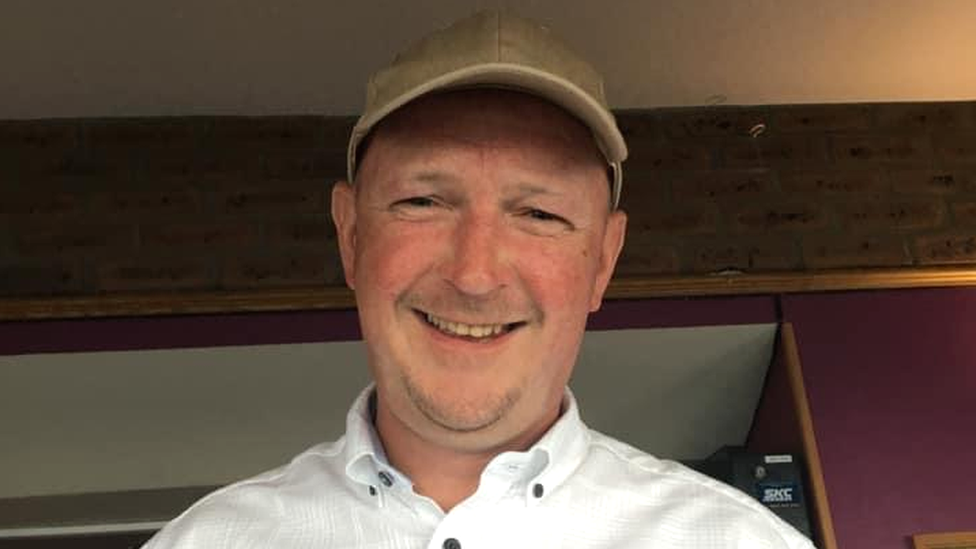
Glenn Quinn, who was 47, was killed in his Carrickfergus home in early January 2020
The brother of murdered Glenn Quinn has said a police apology for failings in how death threat intelligence was handled "means nothing".
Police failed to properly deal with intelligence that indicated he was under threat, an ombudsman has found.
Glenn Quinn, 47, was found beaten to death in his house in Carrickfergus, County Antrim, in January 2020.
No one has been convicted of the killing.
His family believe individuals linked to a loyalist paramilitary group - the South East Antrim Ulster Defence Association (UDA) - were responsible.
'Blood on their hands'
The ombudsman report has found that the Police Service of Northern Ireland (PSNI) failed to warn Glenn Quinn about a threat to his life before he was murdered.
The PSNI has apologised to Mr Quinn's family.
Mr Quinn's mother, Ellen, said she is "absolutely disgusted" by the report's findings.
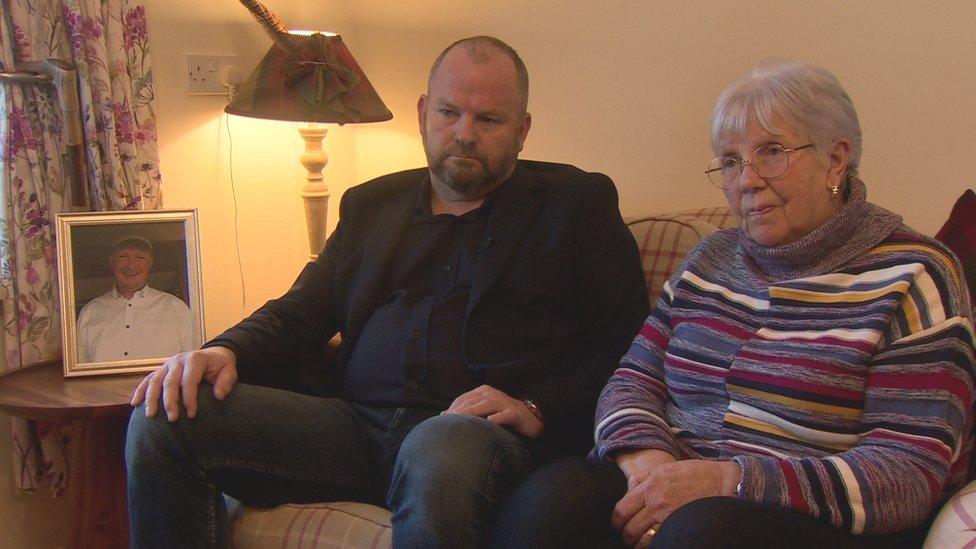
Glenn Quinn's family say they are disgusted by the report's findings
His brother Martin Quinn told BBC News NI that he feels "angry and let down."
"We knew it would be a difficult read and when we got into the detail of the missed opportunities and the inaction carried out by senior officers responsible for policing in Carrick, it's a disgrace," he said.
"It's an absolute indictment on the PSNI itself, almost to the point where the PSNI failed Glenn so much that the PSNI has Glenn's blood on their hands as well as the people that murdered him."
'Things might have been different'
The Police Ombudsman, Marie Anderson, said the PSNI received intelligence from an anonymous source on 1 January 2020, three days before Mr Quinn was found dead.
The intelligence referenced Mr Quinn's name and home address, and that he was to be shot dead at his home.
However, the ombudsman said Mr Quinn was not informed as he was not associated on police systems with the address provided in the intelligence.
"This led to the police failing to identify him as a target," she said.
"However, if police had visited the address it is likely that they would have been able to confirm that he lived there, which would have verified the credibility of the threat."
Glenn's mother said it might have made a difference, but Martin said it "definitely would have".
"If Glenn had of contacted me and said he'd received a threat message from the police we would have immediately moved Glenn away from the danger and then sought to resolve the issue there," Martin said.
"But that wasn't done.
"The police didn't do it."
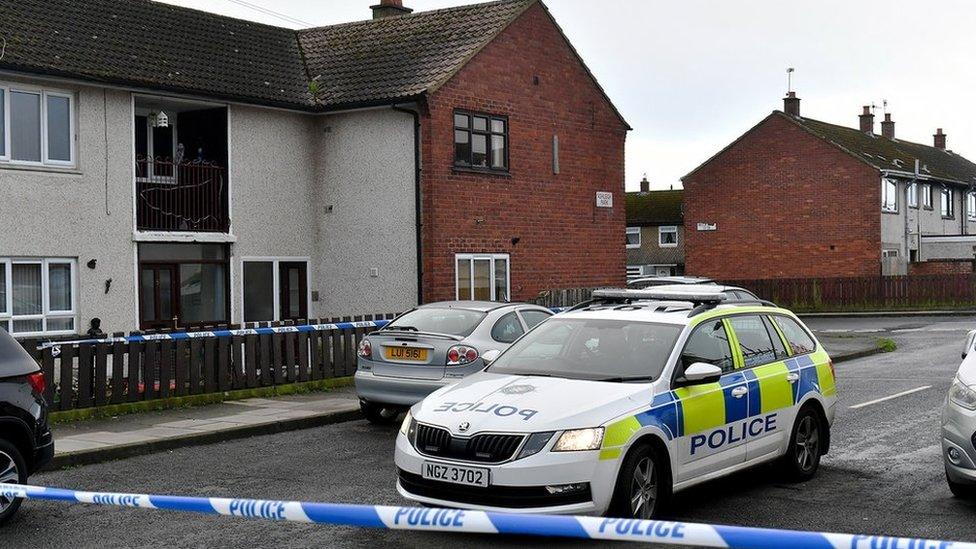
Police cordoned off the murder scene in Ashleigh Park in January 2020
She added: "This would have led to Mr Quinn being given a threat warning notice which would have provided him with an opportunity to consider police advice in respect of appropriate precautionary measures."
Two duty inspectors who each assessed the intelligence said that it did not constitute "a real and immediate threat to life", the ombudsman added.
'Salt in our wounds'
Mrs Anderson recommended that one of the inspectors should be disciplined for this failing, and that she would have recommended the same for the second inspector but the officer retired before her investigation ended.
The ombudsman said the PSNI had decided the serving officer had no case to answer for misconduct and that they should receive additional training instead, a move that Mrs Anderson said was extremely disappointing.
"That is just rubbing salt in our wounds," Martin said.
"How on earth can they justify not disciplining the officer who blatantly took no action, absolutely no action and the ombudsman has identified it and the ombudsman recommended that he be disciplined, and it wasn't done?"
'Police could have stopped it'
The Quinn family are due to meet PSNI Chief Constable Jon Boutcher on Tuesday and want this decision reviewed.
"They can't ignore it. They just can't whitewash it and push it away," said Martin Quinn
"This isn't a dog that was knocked down in the street.
"This was my brother.
"This was a human being. A happy go lucky, really decent guy and he was murdered for nothing, and the police could have stopped it," he added.
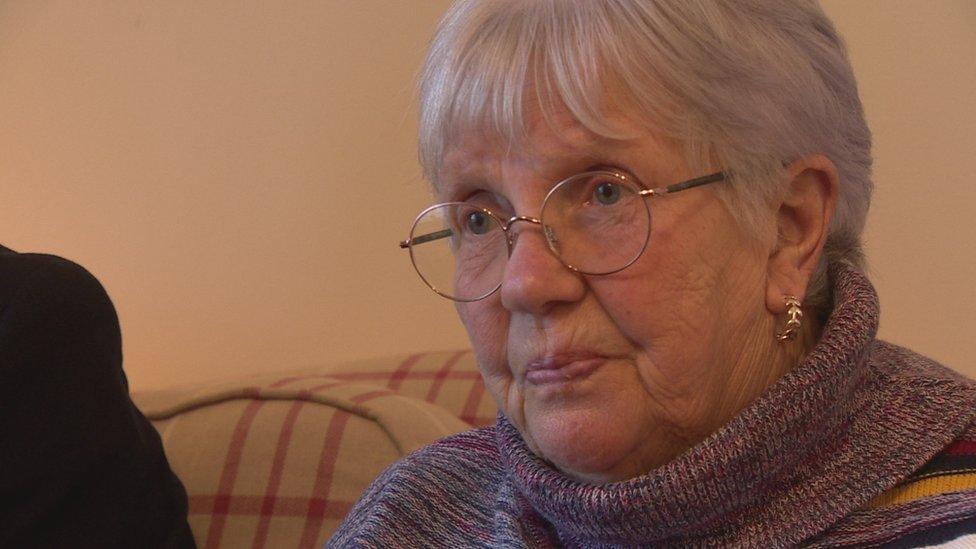
Glenn Quinn's mother says she will fight for justice
Glenn's mother said she will never give up fighting for justice.
"To the day I die I will fight for Glenn, for justice for Glenn, for justice for him and for these people to be punished for that they've done," she said.
In the report, Ms Anderson noted that the police had accepted her recommendation for the introduction of formal training for police officers to make critical 'life and death' decisions in responding to suspected death threats.
"I welcome that police last month commenced this essential basic training", said Mrs Anderson.
PSNI Deputy Chief Constable Chris Todd apologised to Mr Qunn's family and said the police accepted Mrs Anderson's findings.
He said police has "now implemented recommendations to ensure that incidents of a similar nature do not occur again".
"In addition, instructions have also been issued to those involved in the management of threats to reinforce the importance of ensuring that all feasible operational steps are taken to mitigate the threat and ensure a consistent approach to the assessment of threat messages. We must be a learning organisation and I take responsibility for that."
"Policing is a human endeavour and sometimes mistakes are made. The scale and complexity of this work is exceptionally challenging. Intelligence is not an exact science and police often have to work off a partial picture," he added.
The family of Glenn Quinn recently offered an increased reward of £40,000 to help to find his killers on the fourth anniversary of his murder.
- Published4 January 2024
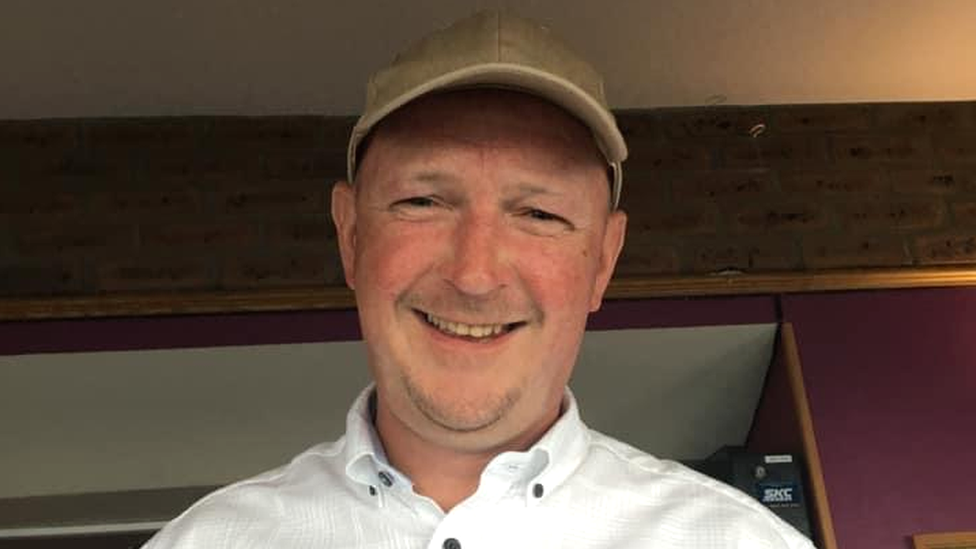
- Published7 November 2022
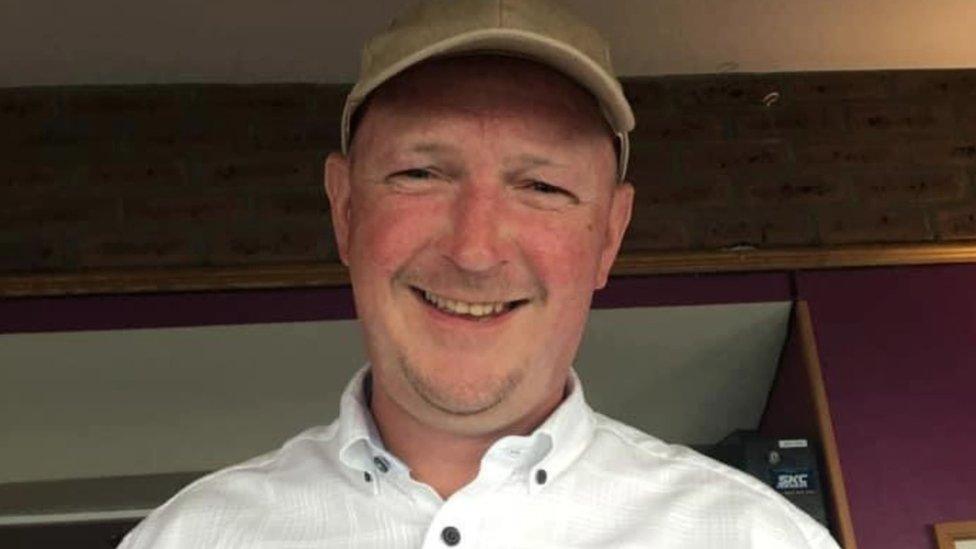
- Published14 July 2022

- Published17 June 2022
